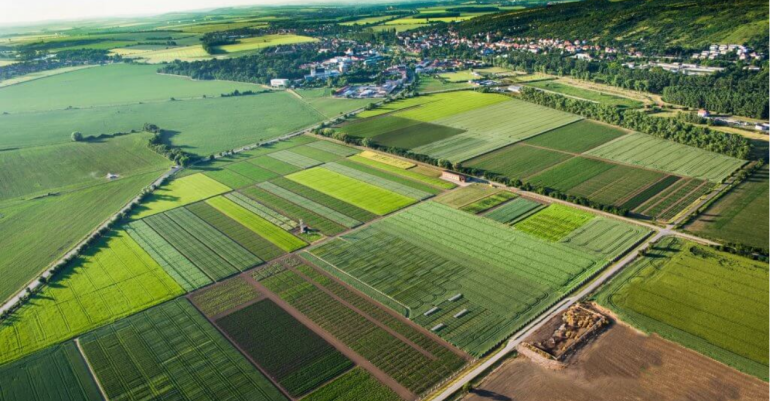Scientists from Mendel University in Brno and experts from the Institute of Global Change Research of the Czech Academy of Sciences are preparing a new handbook for organic farmers. Based on knowledge from neighbouring Austria, which has many years of experience with organic farming, the handbook aims to teach methods and approaches that will allow organic farmers to obtain yields similar to those of the conventional farmers.
The head of the project, Jaroslav Záhora of the MENDELU Faculty of Agriculture, explained that the extreme climatic conditions faced in the past few years have lowered yield differences between organic farming and conventional farming by 15%. He said that: “Long-term monitoring in neighbouring Austria shows that today there is essentially no difference between ecological and conventional farming.”
The handbook that the scientists are preparing promises to initiate the farmers to methods that will both help intensify the plant production and also respect the limits of organic farming, so that it will not affect the environment or the health of consumers. “The basic principles are very simple. It is mainly about using the potential offered by soil organisms,” said Záhora. He advises that the soil needs to be constantly covered in vegetation, not only the target crop; farmers should also pay attention to the immediate crop after the harvest.
The information provided by the scientists is not completely new, but it focuses on providing more care and respect to nature by paying attention to the right ways of adjusting the farming process, such as increasing the interval of seeding of the same crops, including a series of intercrop species, and techniques of ploughing and application of compost.
One of the tips given by the handbook, in order to take into account ecological farming in the context of extreme climatic changes, is the “establishing [of] multi-purpose strips of tree and shrub vegetation in combination with drainage contour ditches (so-called “swales”) and stone overflows in places of concentrated runoff of rainwater from the landscape”.
Currently, approximately 16% of the agricultural land in the Czech Republic is farmed organically. The situation for vine growers seems to be changing faster, according to Záhora, as they are currently using “only one-tenth of pesticides today, [and] are slowly discovering that it is basically no longer necessary to apply them at all”. Approximately 80% of diurnal butterflies have returned to these vineyards, compared to neighbouring vineyards that still use pesticides, where only 15-20% have come back, said Záhora.
According to the scientists, approximately half of the sun’s energy is normally absorbed by the underground part of the plant. Farmers can avoid this by using nitrogen fertilisers to invest the whole amount of energy in the upper part of the plant. Although, at first glance, this should surpass the expected yield, in fact this process weakens the reserves of organic matter in the soil, which will damage its physical structure.
Bacteria, soil fungi, protozoa, viruses and other microorganisms can only thrive in a situation where they receive an adequate share of energy from plants. “The diversity of life in the soil is a good buffer for climate fluctuations,” said Záhora. “Because the rainfall that falls on the functional soil is immediately hidden in its depth without loss of nutrients through leaching. Soil organisms carefully monitor the fate of nutrients.”
It is a different case with soils where mineral fertilisers and pesticides have been applied. Unused nitrogen from fertilisers in the form of nitrates threatens the supply of trace elements in the soil by leaching. “European fields in conventional agriculture do not offer plants the necessary proportion of trace elements, which is reflected, among other things, in the loss of their resistance to climatic factors and various pests. For comparison, today you would have to eat four to eight apples to get the same amount of trace elements into your body as one apple before the war,” said Záhora.
The process of soil becoming healthier is long and difficult. According to Záhora, the procedure of switching from conventional to ecological farming will take years of effort, as the soil needs time to be fed, enliven and the barrier between topsoil and subsoil to be broken.
Healthy soil can better support crops cultivated in a changing climate, but the change will not happen immediately. “To switch from conventional agriculture to organic farming is a difficult and lengthy process in the first years,” noted Záhora. “The soil needs to be fed from above. On the one hand, with catch crops, on the other hand with regular doses of high-quality compost, and thirdly, by allowing the farmer to liven the field with, for example, alfalfa for the first three to four years.” This is to break down the cemented barrier between topsoil and subsoil, with the help of earthworms, and a necessary step for the grower to overcome. Záhora noted that the Austrian farmers with whom they are cooperating have also been going through this process for some time.
It should be expected that the first harvests will be less productive, during the recovery of the soil, and during this period the farmers will need assistance from the state in the form of quality consultancy (especially from agricultural universities) and help building shared centres of specialised agricultural technology and a network of warehouses of mature and high-quality compost. Subsequently, the stabilised system can avoid the ever-increasing costs of purchasing agrochemicals – unlike the conventional techniques of farming.
The handbook for organic farmers is set to be published this year. More detailed information about sustainable management can be found on the project’s website.








